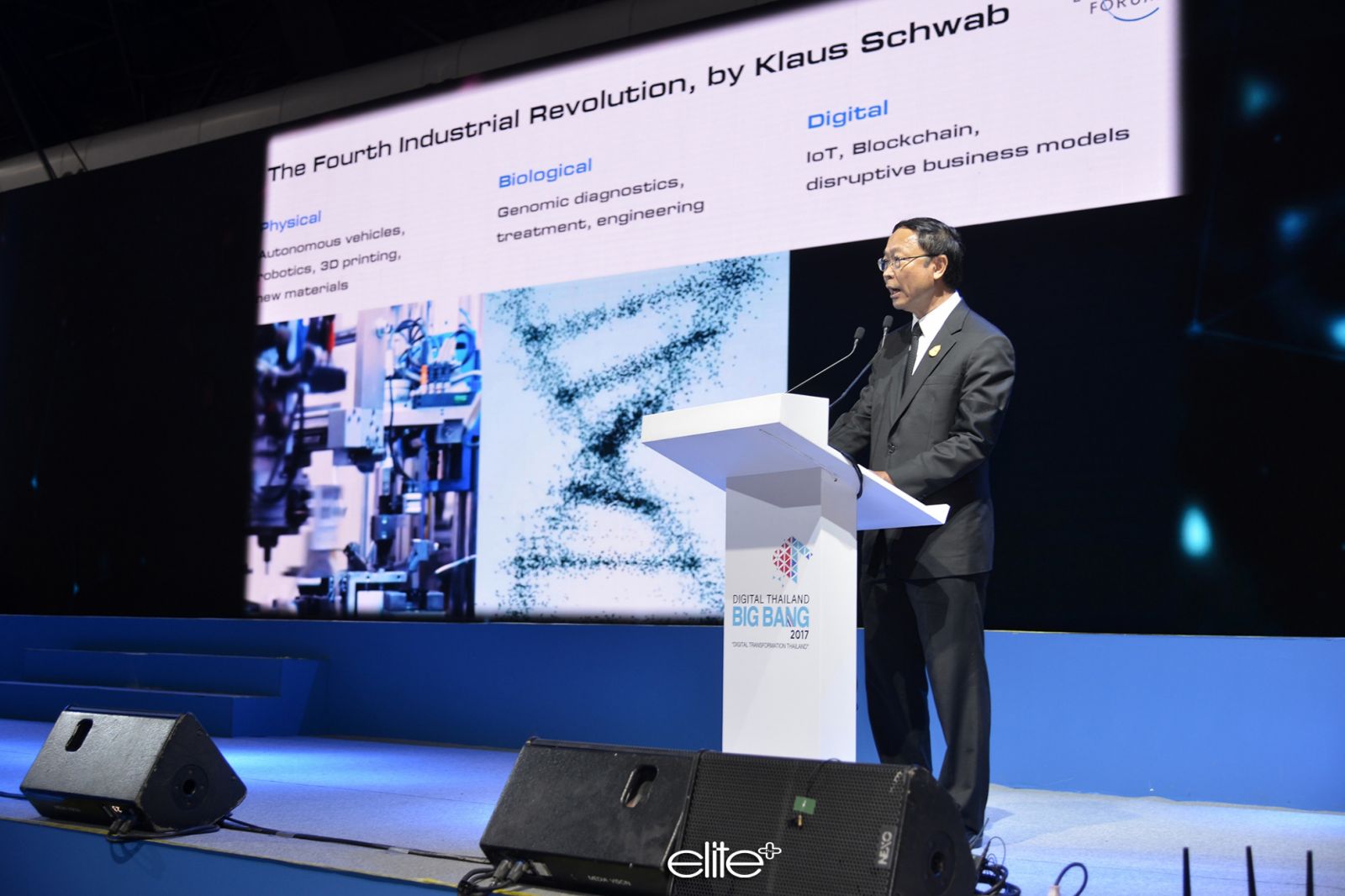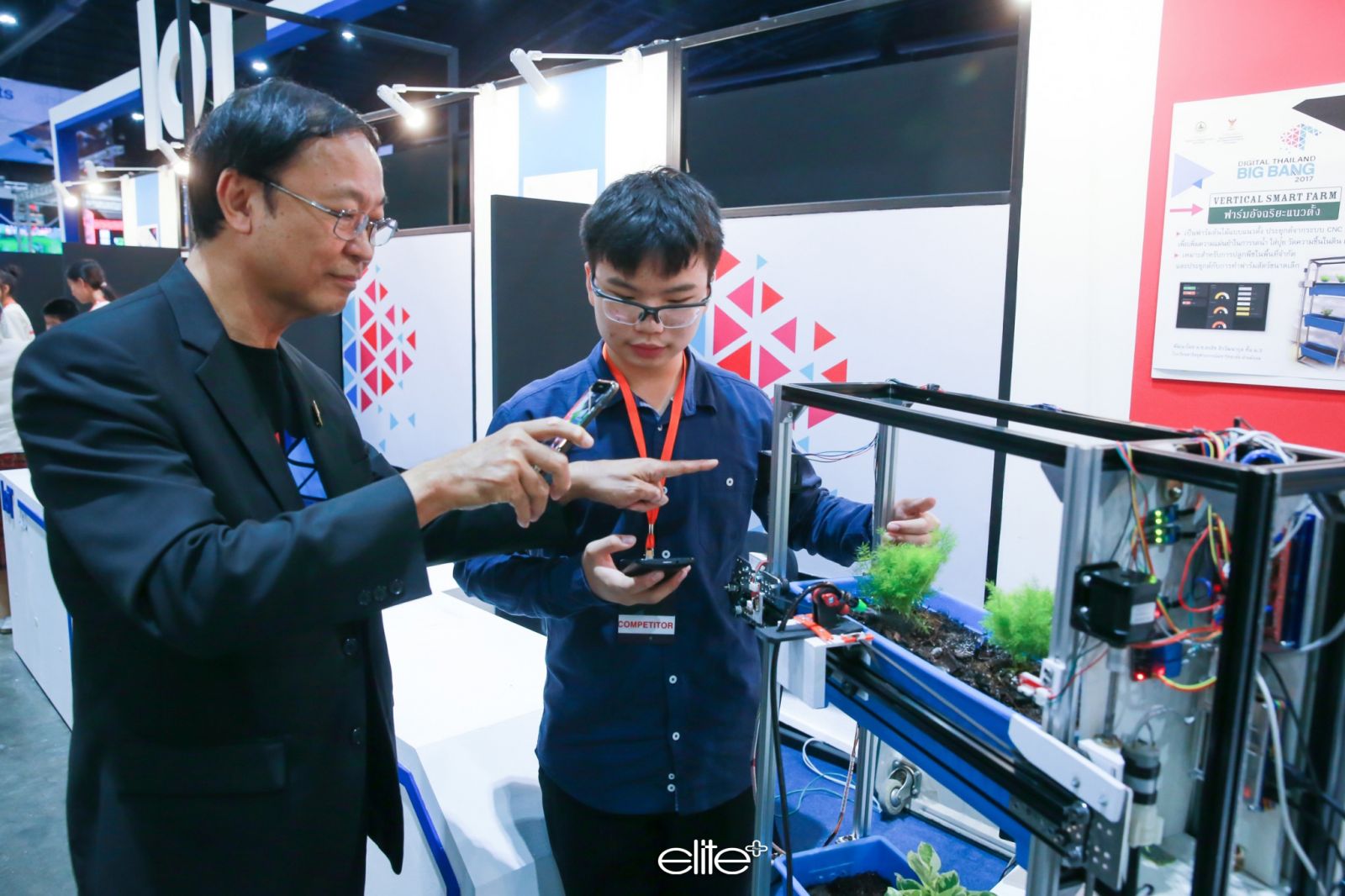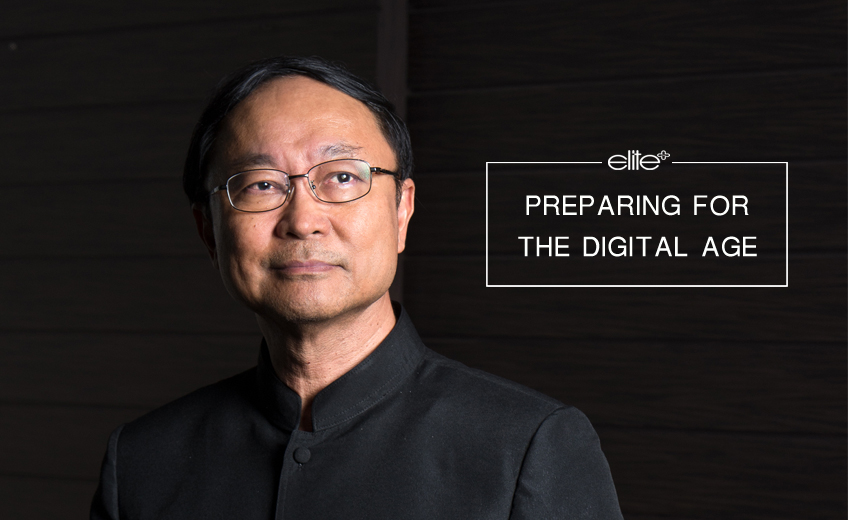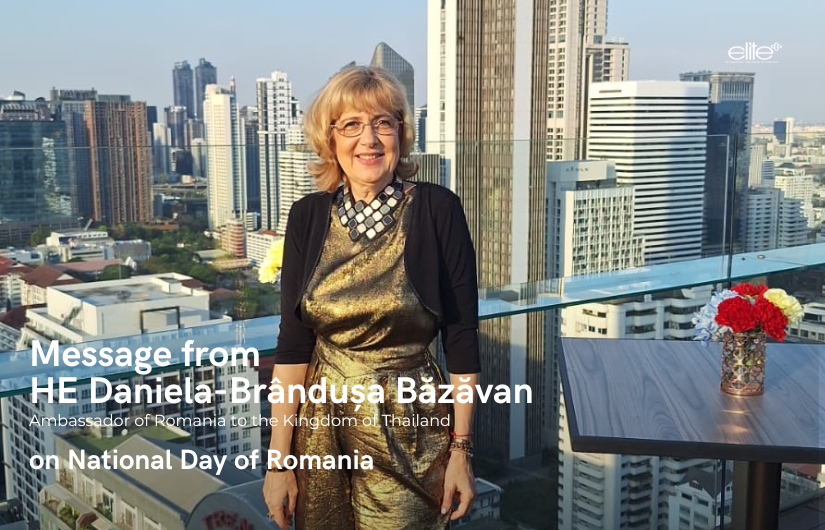As the digital era unfolds, Thailand, like many countries around the world, is readying itself with plans, policies and regulations. Not only law enforcement and regulatory practices, the country is riding the digital highway with big plans – to transform the country and its people through technology. Only nine months ago the government under the helm of Prime Minister Prayut Chan-o-cha established a new agency, the Ministry of Digital Economy and Society, to oversee all digital and related matters, with Pichet Durongkaveroj, PhD, as minister.
After two years as minister of science and technology, Dr Pichet became the first minister of digital economy and society in December 2016. With an outstanding career in public policy, he has contributed to the design, formulation and implementation of major national policies including science and technology, innovation, ICT, e-commerce and education. His contribution also extends to international forums such as UNCTAD, IMD, OECD, APEC and ASEAN, as well as establishing effective science diplomacy to multilateral relations and inter-agency collaborations.
Prior to his appointments to the two ministerial portfolios, he founded and headed many important organizations including as secretary general of the National Science Technology and Innovation Policy Office, executive director of the Knowledge Network Institute of Thailand, director of the Electronic Commerce Resource Centre, chairman of the e-ASEAN working group and director of the National Information Technology Committee Secretariat Office.
Minister Pichet has a bachelor’s degree in electrical engineering from the University of New South Wales in Sydney, a master’s in applied solar energy from Trinity University in Texas and a PhD in public policy and management from the Wharton School of the University of Pennsylvania.
Elite+ sat down to talk to the minister about his vision, policies and views on Thailand as the country goes through a period of major changes and critical development on the digital highway.

How does it feel to be the first minister of a newly established ministry?
It has little to do with being the first, second or last. For me, the duties and responsibilities come before everything else. Once appointed, I started thinking about my responsibilities, the scope of work, the people in the ministry and how to integrate the work with other sectors and at the community level. Certainly I’m proud to be honoured with this position, and the past nine months have been fun and interesting. I know there is going to be a lot of work ahead of me as we need to work a lot with the private sector, both domestic and international.
And what are your responsibilities?
They cover a number of important things. To make it easy to understand, my task at the ministry can be coined as SIGMA.
S stands for security. In this digital world you need to have cyber security. Our task is to protect people from online crimes, protect organizations and the infrastructure from being attacked. This is what every country around the world is trying to do, and we are doing just that. Not only protect, we have to prevent such unfortunate things from happening. Do you remember WannaCry that attacked the whole world a few months back? This is the sort of thing the ministry aims to protect people from.
I stands for infrastructure; that includes hardware such as optical fibres, submarine cables and software like legal infrastructure, such as an electronic transaction law, privacy law, data protection law and so on.
G is for government, in this case e-government or digital government. Today governments of many countries are becoming more open and transparent, and we need to move towards that trend, too. This morning we were demonstrating to the prime minister how we can declare how the government manages tax money to the public for the people to review. We also talk about a big public data centre that will greatly benefit policy planning, business operations and communities in general. We are also looking to use cloud computing to boost efficiency.
M is for manpower. Without human resources we cannot do much, so we are working to enlarge the pool of human resources in digital technology. We should educate and train people to be aware of the role of digital technology in their life. We use digital technologies extensively in our daily life, whether you know it or not. Hence we should know the pros and cons and how to make use of them.
Lastly, A stands for applications, which are diverse and ever-evolving. We have a lot of new industries today that are very disruptive to the old regime of industry – whether in transportation, tourism, property management and so on. Applications have become a very important part of our daily life. It’s the kind of software that we use every day. This also goes to the community level. Apart from making sure that Thailand has more creativity and innovation, the Thailand 4.0 policy aims to reduce the gap between rich and the poor, the rural part and the metropolitan. And through digital technology we can achieve that.

Could you explain how?
This year we are installing optical fibres in 24,700 villages throughout Thailand in this initiative called net pracharat. This is about a third of the villages in the entire country and it will be done by the end of this year. Next year we will finish the rest. So by the end of next year, the whole of Thailand will be wired, with access to broadband. People in remote areas can enjoy the same connectivity people in Bangkok and other big cities have. This is when change will come. Some may use this connectivity for entertainment, some for education and some for business – e-commerce to launch their products in larger markets. Some may invite tourists to visit their small resorts in faraway villages. A lot of good, positive things can result from this and undoubtedly the quality of life will be enhanced.
Are there any more concrete plans for this?
Very recently I was working with the minister of public health in order to install, at the pilot level, telemedicine in remote villages. Health personnel will soon be able to connect and consult on cases via the Internet. Village nurses and doctors can connect to experts from specific fields, exchange x-ray film and test results and advice on treatment. We have tested this over and over again, and it will prove to be very useful.

Thailand 4.0 has become a widely used term of late. What does it mean exactly?
It is basically a policy to raise the average income of Thai citizens to another level. Thailand is classified as a middle-income country with a developed economy where people enjoy higher income. The goal is to raise that roof and equip our people with whatever it takes for them to earn a better living. Four is the highest goal, and it’s ambitious if we aim for that. In fact, any progress is a success story for us. If we could educate and train labourers to become more skilled and creative, say from zero to 1.0, it’s a success.
This is a policy that focuses on human resources, to inspire and drive them to rise up, do better work and even create new industries. Certainly there are some gaps to fill, and it will be difficult, but we can definitely achieve that. In a nutshell, Thailand 4.0 has three pillars – creating new innovation, reducing the gap between the rich and the poor and maintaining sustainable development.
What’s the role of digital technology in Thailand 4.0?
Digital technology is not the most important thing but it’s very important. It’s a key driver and if you look at many other countries in the world, you’ll see the same thing. We see the penetration of digital in everyday life, even those who are poor or live close to the border. People consume more via the internet; for example, fewer people read newspapers but they get more news online. And many other things come along through the digital highway and applications.
Innovation in digital technology can become a new industry; take BotNoi for example. It’s a Thai-made chat-bot in the Line application, where artificial intelligence converses with real life users. Even when you don’t have anyone to talk to, you can chat with BotNoi. The chat bot develops and improves itself all the time without human interference, and within six months of its launch the application had half a million followers because it’s a lot of fun.
We also see a clear trend of automated factories that have many benefits. It reduces costs, reduces the use of manpower, minimizes errors and maximizes precision. Today everything is getting smaller and smaller.
What other projects do you have in the pipeline?
Our major project is establishing Digital Park Thailand in Si Racha District in Chon Buri. It covers more than 700 rai and we are now inviting many multinational companies and Thai companies to work together in this area on digital technology. Close to Si Racha is a huge automobile industry, which is also undergoing a drastic transformation from gas to electricity. In the near future you won’t be driving a car but a computer on wheels. So Digital Park Thailand will aim to develop the internet of things (IOT) in the automotive industry, which can also be implemented and expanded to other industries.
From what we understand, the ministry has started to make Phuket a smart city?
This was actually initiated before my term. We have done a number of things in Phuket to make sure the city is smart enough to take care of the tourists. Once they arrive at Phuket International Airport, they will receive one wristband equipped with radio-frequency identification (RFID). They can purchase things with prepaid money in the chip, and they can also be traced and tracked, if they want to be, for safety reasons. We are also installing a lot of CCTV throughout the islands to provide safety and help the police do their work.
We are moving from Phuket to Chiang Mai and Khon Kaen. Most recently, we want to make the smart Eastern Economic Corridor (EEC), covering the three provinces of Rayong, Chon Buri and Chachoengsao. This year and next we aim to make six provinces smart, and soon all of Thailand will become a smart city.
What about big data plans for government agencies?
We were just assigned to handle the government big data centre, which is a very big task. Efficiency is key here, and we aim to offer a one-stop service at all agencies to reduce paperwork and time, and hopefully we will ultimately go paperless. We’re doing it as fast as possible because this is the fundamental thing. Earlier you mentioned law infrastructure. We have established a National Digital Committee, chaired by the prime minister, and two new agencies to look after many digital policies as well as digital promotions. By the end of the year we should complete all the eight legal laws that are digital-related so the legal infrastructure will be in place. We also make sure that we work together with partners.
Why is digital-related law infrastructure so important?
It is mainly because we don’t really know how digital technology can be used. Take for example Bitcoin, which the whole world, not just us, is trying figure out if it’s good or bad and how it should be regulated. Again, it relates to WannaCry, which was “ransomware” that hacked into systems and demanded ransom money to have the system restored and functional again. And how do you pay? Bitcoin. It is a heavily encrypted channel of transaction that makes it impossible to identify the parties involved. This is an extreme case, but things like this can happen anytime on different scales.
Anyhow, we have passed a computer crime law, which a lot of countries have. And we are now working on cybercrime law, which has to first go through the National Legislative Council and that requires another half year to pass. We have also been doing the electronic transaction law as well as data protection. All these combined will make Thailand a good and safe place to work because you have all the laws in place.
How do you control digital technology once it is available to everyone in the country?
We don’t want to control anything. We don’t want the government to do too much but enough for society to be protected at a minimum level at least. We may have 95 per cent of positive usage of digital technology, and a few per cent of the dark side, but the main thing is trying to increase the positive side to become as large as possible and minimize negative usage. But you have to accept the fact that you cannot have all 100 per cent of a good thing. It’s not just crime; there are cases of cyber bullying, cyber abuse, fraud, untruthful information, disinformation, or sometimes purely very bad information. Everybody has to be involved, and it’s not the government’s job alone.
Where does Thailand stand in the global community on this?
I call it digital diplomacy, and by that I’m talking about how Thailand plays a role in internationalization. For the first time, the Organization for Economic Cooperation and Development (OECD) had a welcoming gesture for Thailand when I met with the secretary general of the group. Collaboration was discussed and it is very likely that Thailand will become a member, and we have been trying for the past 12 years. This is a big step and it shows that we have made a good impression.
Another case is with the International Technology Unit (ITU), which is the UN’s arm for telecommunications. We have been working with them very closely and they even have an office close to ours. Very recently when they heard that we are organizing Digital Thailand Big Bang 2017 (September 21-24), they asked if they could host a few seminars and meetings. This is a big deal.
Just yesterday more than 500 Japanese businessmen came together in Thailand and went to the government house and met with the PM and many ministers because they are interested in investing in Thailand. This is clearly a good sign that Thailand has developed in the right direction and the world is starting to take notice.






























































































































































































































































































































































































































































































































































































































































































































































































































































































































